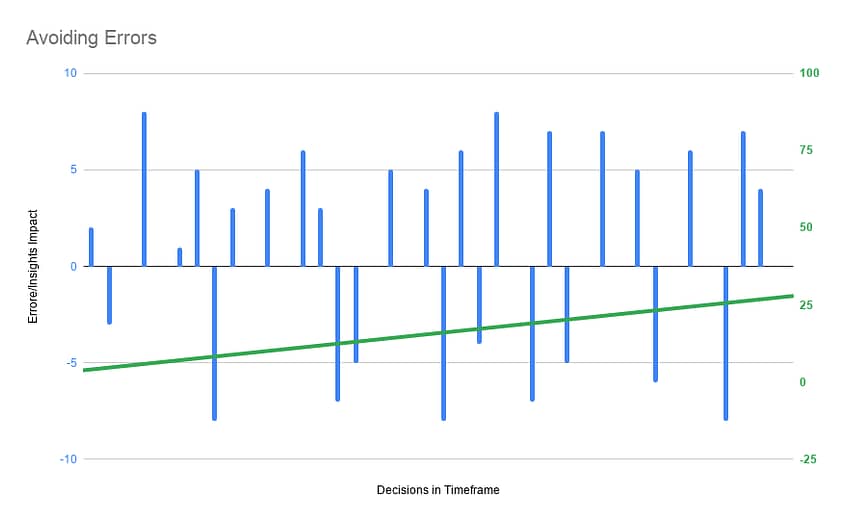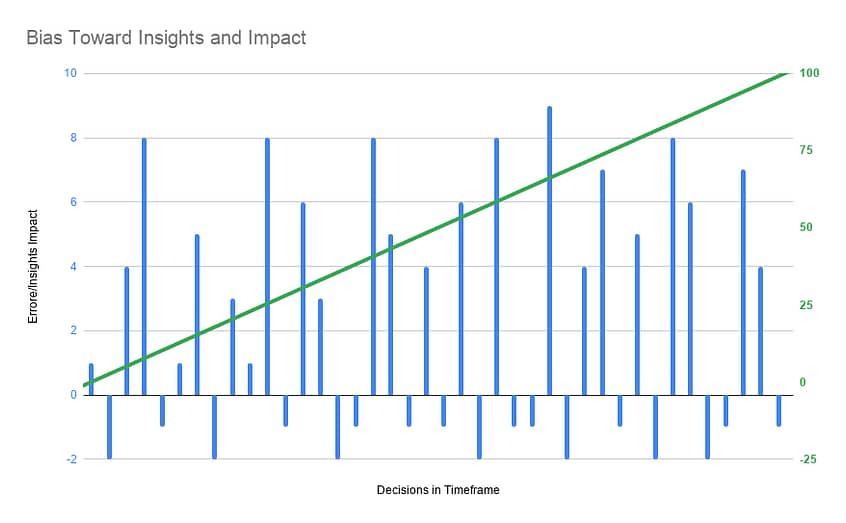“To improve performance, we need to do two things… we have to reduce, errors... we have to increase, insights. Performance improvement depends on doing both of these things.“ — “Seeing What Others Don’t” by Gary Kline
So, errors have a negative impact, and insights have a positive impact.
However, there is another dimension that is missing in the equation above.
About 30 years ago, I read a book of interviews with successful traders in the financial markets.
One sentence that stuck with me, and I’m paraphrasing, was, “cut your losses and run your wins.”
Errors and insights are not created equally. You can have big paradigm-shifting insights and huge mistakes, as well as insignificant ones.
Not only do you need to reduce the number of errors and increase the number of insights, you need to minimize the impact of errors and maximize the impact of insights.
Errors are inevitable and help us gain new insight.
Some decisions, even if erroneous, have such a small impact that it’s not worth investing much time in making the decision.
Over time, the policy of avoiding errors, does produce benefits. Putting an emphasis on reducing the impact of errors and increasing the impact of insights, will increase the trajectory of the benefits you’ll gain - you’ll get better results at a faster pace.


You won’t eliminate errors completely. The best route to take is making sure you spend less time protecting yourself from errors with little impact (while trying to limit the downside of errors that can have high impact). Then, you can spend more effort on generating new high-impact insights.
